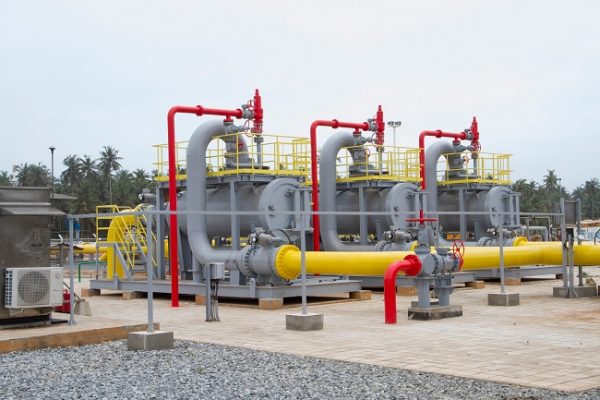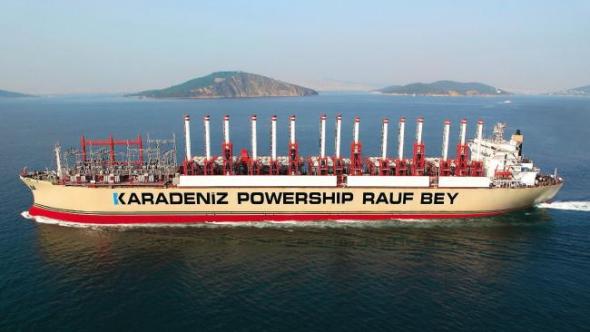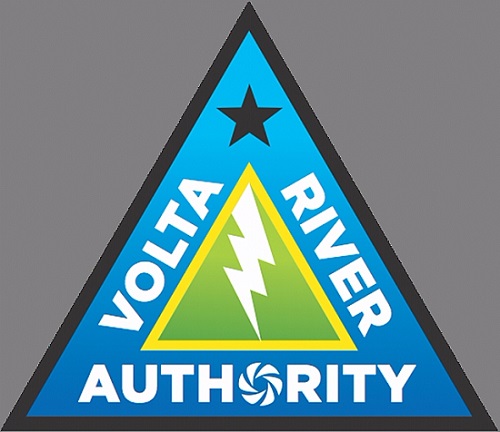The $560 million represents the value of lean gas supplied to VRA for power generation as of June 2017, but VRA could not pay for it.
Emmanuel Essel, Head of Accounts at Ghana Gas, who disclosed this, said ever since Ghana Gas started supplying gas to VRA, it has paid only GH?15 million during the period.
He is confident that once government pays the VRA debt, the $1 billion loan contracted from the Chinese government to build the gas processing plant at Atuabo would be paid as scheduled.
He explained that as a result of VRA’s indebtedness, Ghana Gas was unable to pay Ghana National Petroleum Corporation (GNPC) about $150 million for the raw gas from the oilfields.
In addition, he said Ghana Gas is also indebted to the Public Utilities Regulatory Commission (PURC) and SINOPEC, as well as cost of operation and maintenance, among others.
According to him, lean gas constitutes about 90% of the business and, therefore, generates the largest revenue.
Essel stated that two liquids – Liquefied Petroleum Gas (LPG) and condensate – constitute about 10% of the business.
He explained that the prices of LPG and condensate are determined by the price of crude on the world market.
According to him, on the average, the company makes between $3 million and $4 million every month from the sale of LPG and condensate.
He disclosed that this monthly revenue has been used to manage the day-to-day administration of the business all this while.
The indebtedness is the result of the failure of the Electricity Company of Ghana (ECG), Independent Power Producers (IPPs) and the Volta Aluminium Company (VALCO) to pay VRA for services rendered, as well as the unrealistically low tariffs sanctioned by the PURC.
Power Purchase Agreement
Even though ECG has signed a power purchase agreement with IPPs, it has failed to do same with VRA despite persistent pressure from VRA in the last five years.
One of the reasons ECG has persistently failed to sign the power purchase agreement is a clause in the agreement which demands that ECG pays outstanding debts with interest.
ECG argues that consumers of electricity do not pay outstanding debts with interest; therefore, it cannot do so to VRA.
For this reason, ECG usually pays IPPs first before considering paying VRA and Ghana Grid Company (GRIDCo).
Also, consumers pay ECG in cedis but ECG has to pay IPPs the dollar equivalent of power purchased using prevailing exchange rate as stated in the power purchase agreement.
This takes a large chunk of ECG’s money, for which reason ECG is unable to settle its debt to VRA since about 40% of power ECG purchases goes to government institutions, which do not pay bills.
Audited accounts of ECG indicate that as of the end of 2014, government owed ECG GH?1 billion out of the GH?1.6 billion debt on the company’s books.
Despite the huge indebtedness, VRA cannot cut supply to ECG because of its strategic nature.
Fuel for IPPs
In addition, VRA supplies fuel to all IPPs in the country.
However, the IPPs have failed to pay for the fuel with the explanation that ECG has not paid them in full and since ECG and VRA are state institutions, VRA should collect the fuel money from the money ECG owes them.
Despite this challenge, VRA continues to supply the IPPs fuel because failure to do so would result in huge deficits in power supply.
Consequently, VRA has borrowed money from numerous banks just to keep generating power for the nation.
Now, most of the banks are reluctant to lend to VRA because of the huge indebtedness.
$560m bond cash to pay VRA’s debt to Ghana Gas
- Posted on
- Comment
 OUT of the GH¢17.4 billion bonds government will raise in the third quarter of this year from the securities market, $560million will be used to settle the Volta River Authority’s (VRA) indebtedness to Ghana National Gas Company (GNGC).
OUT of the GH¢17.4 billion bonds government will raise in the third quarter of this year from the securities market, $560million will be used to settle the Volta River Authority’s (VRA) indebtedness to Ghana National Gas Company (GNGC).
By Elvis DARKO, Accra










 (Selorm) |
(Selorm) |  (Nana Kwesi)
(Nana Kwesi)